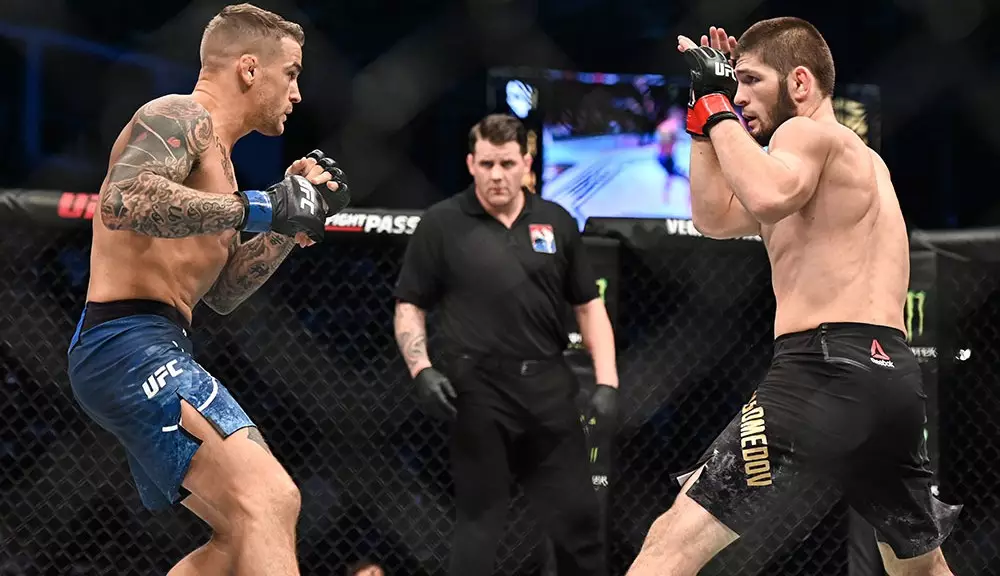As the mixed martial arts landscape continues to evolve, one of its most significant figures, Khabib Nurmagomedov, has voiced a sentiment that many fans and analysts have likely pondered: it’s time for certain veterans in the UFC lightweight division to consider retirement. Reflections on the careers of fighters like Dustin Poirier illustrate not just individual journeys, but also the broader transitional phase within the lightweight class. After competing against some of the division’s most renowned athletes, Nurmagomedov’s insights hold weight, drawing attention to the necessity of recognizing when to step back.
Nurmagomedov, speaking on the “Pound 4 Pound” podcast, shared his perspective candidly about Poirier’s recent performance against Islam Makhachev at UFC 302, where Poirier faced a tough defeat. Despite an admirable effort during the match, Khabib urged Poirier, previously holding an illustrious 30-8 record, to reconsider his future in the sport. He stated plainly, “Poirier has to stop fighting. He’s finished.” This perspective underscores a critical understanding within competitive sports—the importance of recognizing one’s peak and knowing when to pass the torch.
The comment highlights a collective sentiment that many established fighters should contemplate their legacies and their effectiveness in the cage. Alongside Poirier, Khabib pointed to other veteran figures like Justin Gaethje and Tony Ferguson, emphasizing that their time may be waning. The camaraderie among these fighters, who share an old-school mentality, indicates a deep respect for the sport, yet also a realistic approach to its unforgiving nature.
Retirement discussions in combat sports often affect not just the athletes’ careers but their mental and physical well-being. Khabib, whose own career concluded abruptly after a spectacular run that included maintaining an undefeated record, is acutely aware of the psychological and emotional ramifications tied to such decisions. Having promised his mother he would retire after his father’s passing, Khabib serves as a poignant example of knowing when to leave the sport.
In stark contrast to fighters who continue past their prime, Khabib’s early retirement stands as a testament to an athlete prioritizing family obligations and personal health over competitive ambition. This raises a broader question about the pressures fighters face when considering retirement, especially amidst the allure of potential glory or financial gain.
As Nurmagomedov’s comments echo throughout the MMA universe, they serve as a clarion call for the evolution of the lightweight division. With talents like Islam Makhachev now leading the charge, there’s an obvious influx of new fighters ready to make their mark. The need for seasoned professionals to gracefully exit ensures that the sport can flourish and innovate while respecting the legacies created by those who came before.
Khabib Nurmagomedov’s reflections around retirement convey more than personal opinions; they encapsulate a thoughtful discourse on the future of the lightweight division and the responsibilities athletes have toward themselves and the sport they love. The end of an era offers not just nostalgia but the promise of new battles to come, provided the veterans recognize when it’s time to hang up their gloves.

